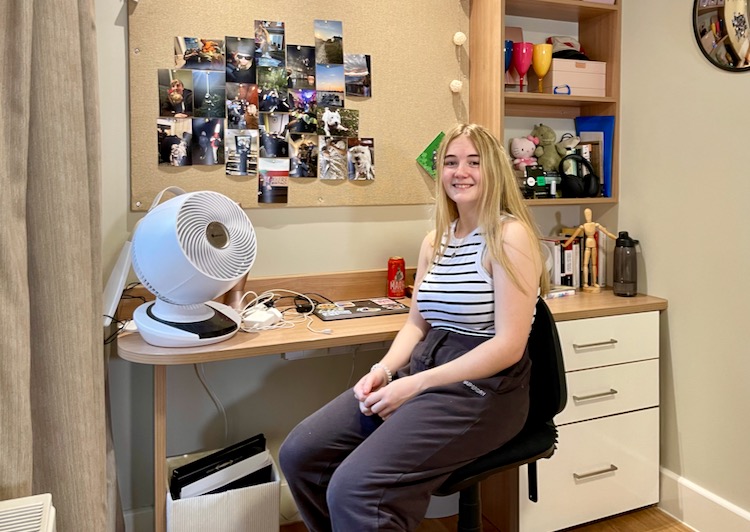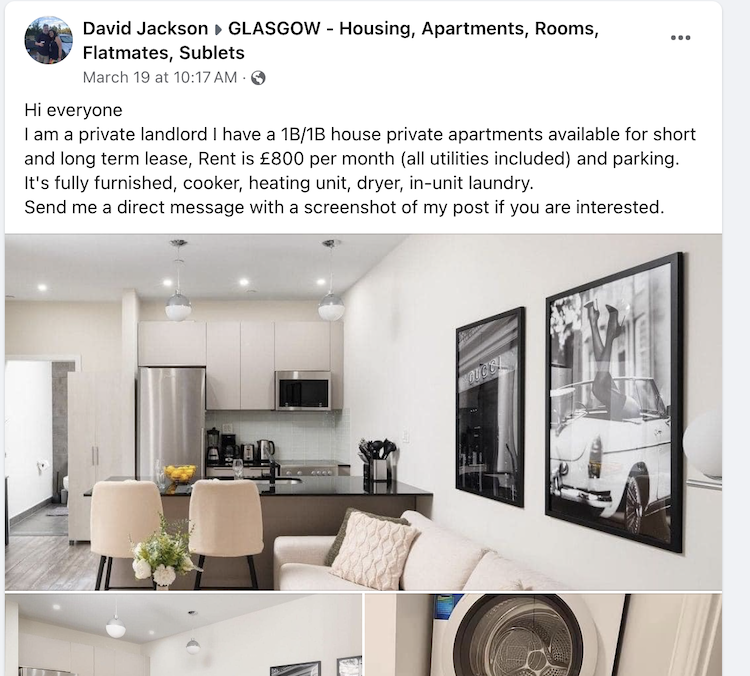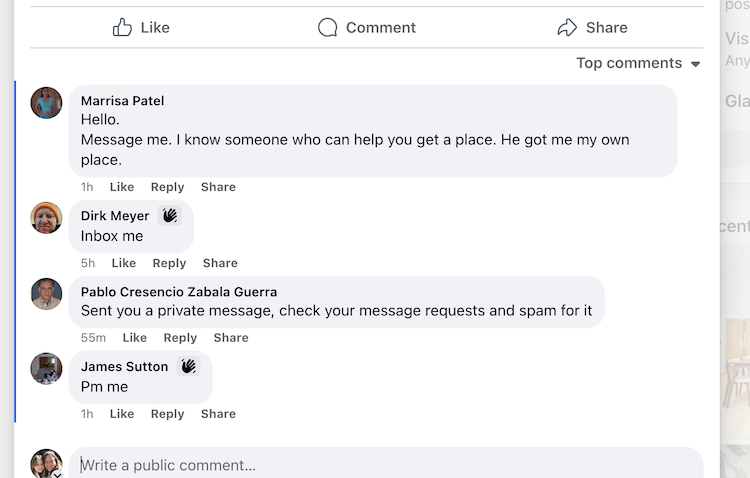
Do you know how to avoid university accommodation scams?
Following on from my last post about Facebook Ads scammers, here’s another thing to look out for.
My daughter is shortly going into second year of university. That means she’s looking for a flat to share with her friends. One of the (in my view) ridiculous things that is happening with student flats right now is that as competition for flats has increased, students are looking for second/third year accommodation earlier and earlier.
If your young person is starting university this September, they may well start organising second year accommodation by Christmas! To me, it seems insane. How can you choose who you want to live with, after only six weeks at uni? Luckily, Flea’s at uni in Scotland where accommodation contracts work differently. There, most students look for flats from March or April. Then, contracts start in May.
Students are competing for flats, so there’s HUGE pressure to pay deposits and ‘snap up’ a flat. Accommodation sometimes goes to the first group of students who look for it. This puts students (and their families) at enormous risk of accommodation scams.
How Accommodation Scams Work
By far the most common scam I’ve seen is the ‘deposit’ scam.
Scammers will post an ad online and invite students to apply to view the property. Invariably the flat will look incredibly nice and the rent will be low. The listing might mention a whole host of extras from parking spaces to en suite bathrooms.


When the student contacts the property owner they’ll be asked for a registration fee or holding deposit to book a viewing. In some cases, students might be invited to a “virtual” viewing. The landlord might say that’s because people currently live in the flat and it’s not available to view in person yet. If they like the flat after the virtual viewing, they’ll be asked to pay a deposit.
Of course, a week later the student realises there is no real viewing. There is no property. The scammer is long gone. So is your money.
Scammers also like to respond to ads that students place themselves.
When a student posts an ad looking for information or leads about a property, they are inundated with comments. These will be from scammers inviting them to get in touch because they “know a place”. And then the scam works much as the one above. The student is asked to pay a fee to view the property.


How to Spot Accommodation Scams
A lot of accommodation scams and property fraud works the same way:
- The scammer posts photos of a property that doesn’t exist. Because in most cases the scammers are not in the UK, the photos don’t REALLY look like a UK property. Things like ovens, showers, light sockets and plugs will be obviously American.
- The scammers post in Facebook groups using hacked Facebook accounts. So look at the person’s profile and check when they last posted, does their name match the gender Facebook thinks they are. Do they live in the area they are renting the property in? Are they even in the same country?
- Scammers make a living by posting multiple fake property ads in dozens or even hundreds of Facebook groups and listing websites at a time. To ensure their scam works, they need to know which ad exactly the victim is responding to. So they’ll ask you to get in touch “sharing a screenshot of this ad” so they know how to proceed with the scam.
- Another common line in scams is “DM the owner” with a random phone number.
- When you book to view of a property, ask for the licensing number of the agent or owner. In many UK cities landlords need an HMO license to rent a property to students and checking the landlord is registered is a sensible first check.
- If you view a property in person remember, there’s no guarantee the person showing you the property actually owns it. Or that it hasn’t already been rented. If you meet an owner, don’t be embarrassed to ask for proof of their ID and proof that they own the property.
- To prove that a property exists, ask for copies of tenancy agreements, gas safety certificates or HMO license number.
- Be cautious of ads with no telephone number, or a number starting 070 or +4470 as these are non-geographic numbers and could easily be scammers operating from overseas.
And most importantly
- Don’t ever pay a deposit or any rent upfront to view a property. Don’t share bank details or credit card detail to “prove” that you have the funds necessary to rent a property. Proof of funds should be sent with financial account information removed. If you do pay a deposit, make sure it’s after you’ve checked out the landlord, viewed the property and are confident the deal is genuine. Your deposit should be held in a secure deposit scheme, and ensure you receive a receipt, and a contract that stipulates where the money is held, and what happens in the event of a problem.






